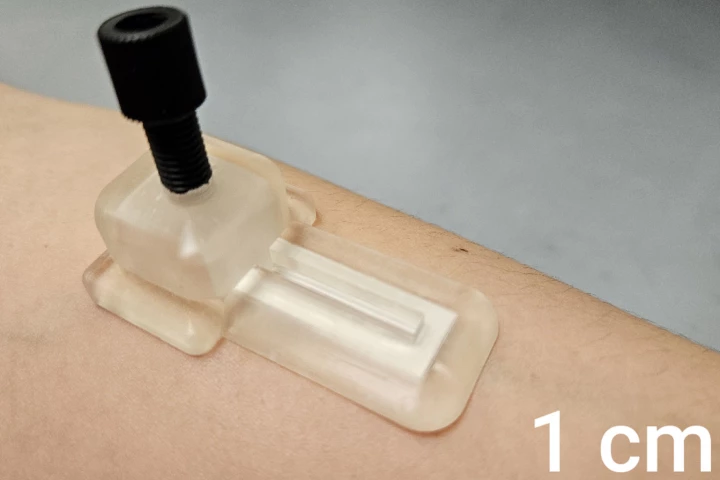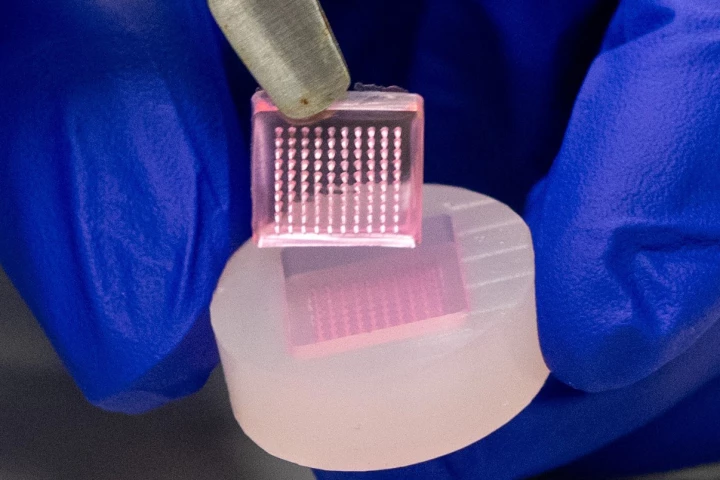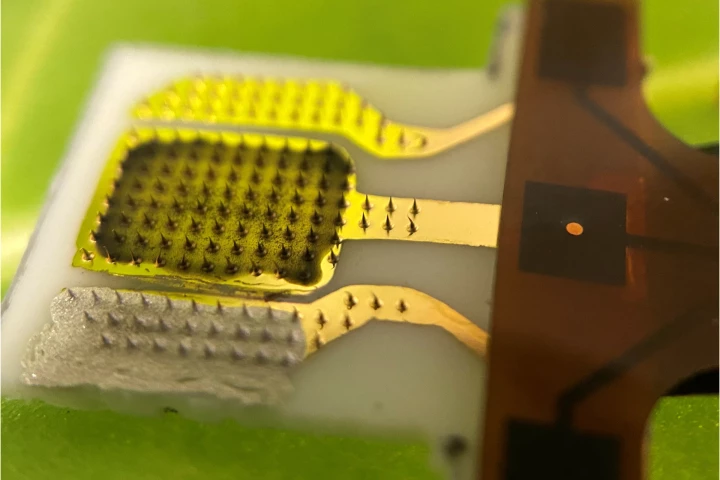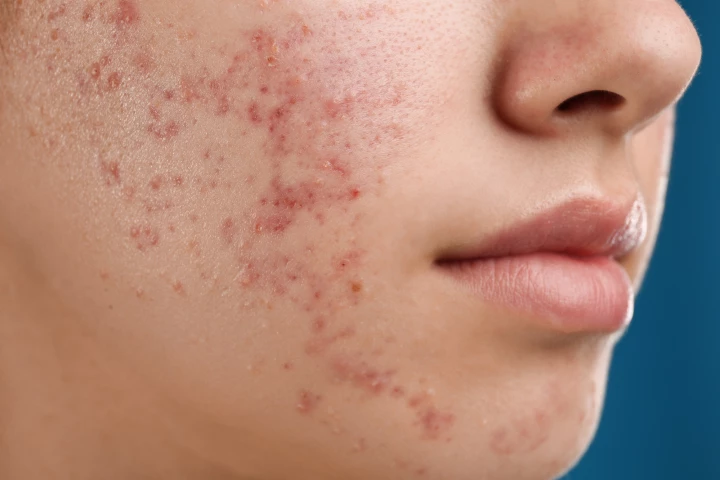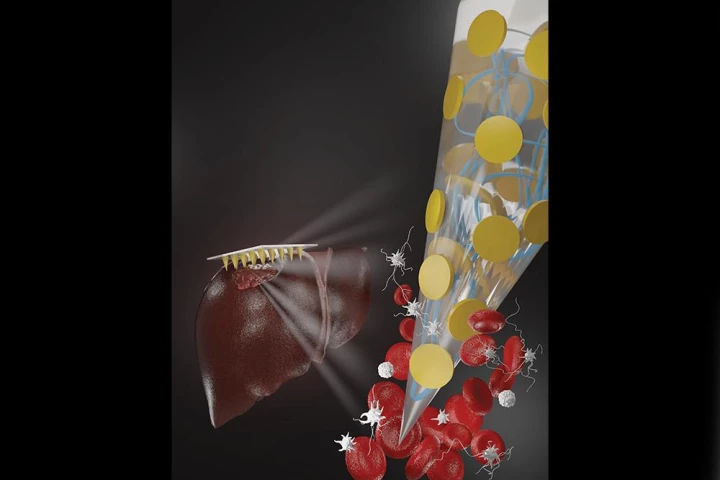Microneedles
-
The future of acne treatment might look way different than today's oral and topical medications. A new therapeutic patch features dissolving microneedles with hollow bubbles for precisely delivering multiple drugs with different release rates.
-
A new thumb-patch of dissolvable microneedles injects biofertilizer directly into plant leaves. In lab tests, kale and choy sum grew taller and faster with bigger leaves and shoot biomass, using 15% less biofertilizer.
-
Anaphylaxis is not something to be taken lightly, as it's an allergic reaction that can be fatal if not halted. That's where a new skin patch comes in, as it could warn of the onset of anaphylaxis while there's still time to head it off.
-
When you're checking the freshness of a piece of fish that you plan on eating, you want results right away. That's where a new microneedle-based sensor comes in, as it delivers a yay or nay in less than two minutes.
-
Nobody likes having blood samples taken, which is why it's always good to hear about possible alternatives. One of the latest takes the form of a self-powered skin patch that painlessly gathers biomarker chemicals for up to 24 hours at a time.
-
Researchers at the National University of Singapore have hit upon new technologies to deliver a double whammy to chronic wounds in diabetics, using tiny needles barely visible to the human eye.
-
The sooner a farmer knows that their crops are suffering, the faster they can take action to prevent major crop failure. A new plant-leaf-poking sensor could soon help them do so, by sending an alert as soon as the plant gets stressed.
-
Scientists at Harvard have developed a promising new treatment to reverse hair loss associated with alopecia. Painless microneedle patches loaded with an immune regulating drug regrew hair in mice with alopecia within a few weeks.
-
Nobody likes having to get needles on a frequent basis, or even having to take multiple medications orally throughout the day. A wearable patch could help, by painlessly administering different drugs through the skin when triggered by a smartphone.
-
While it's important for your dog or cat to have a form of ID in case they get lost, tags can fall off, and microchips can migrate out of place. Japanese scientists are developing an alternative, in the form of quick and painless tattoos.
-
A novel microneedle patch may bring new hope to people who struggle to keep their acne under control. Instead of utilizing antibiotics, the device releases nanoparticles that kill acne-causing bacteria when triggered by exposure to ultrasound.
-
Skin-applied microneedle patches are already used to painlessly deliver medication and detect chemicals in a patient's bloodstream. A new one, however, reportedly stops wounds from bleeding much more effectively than traditional bandages.
Load More




